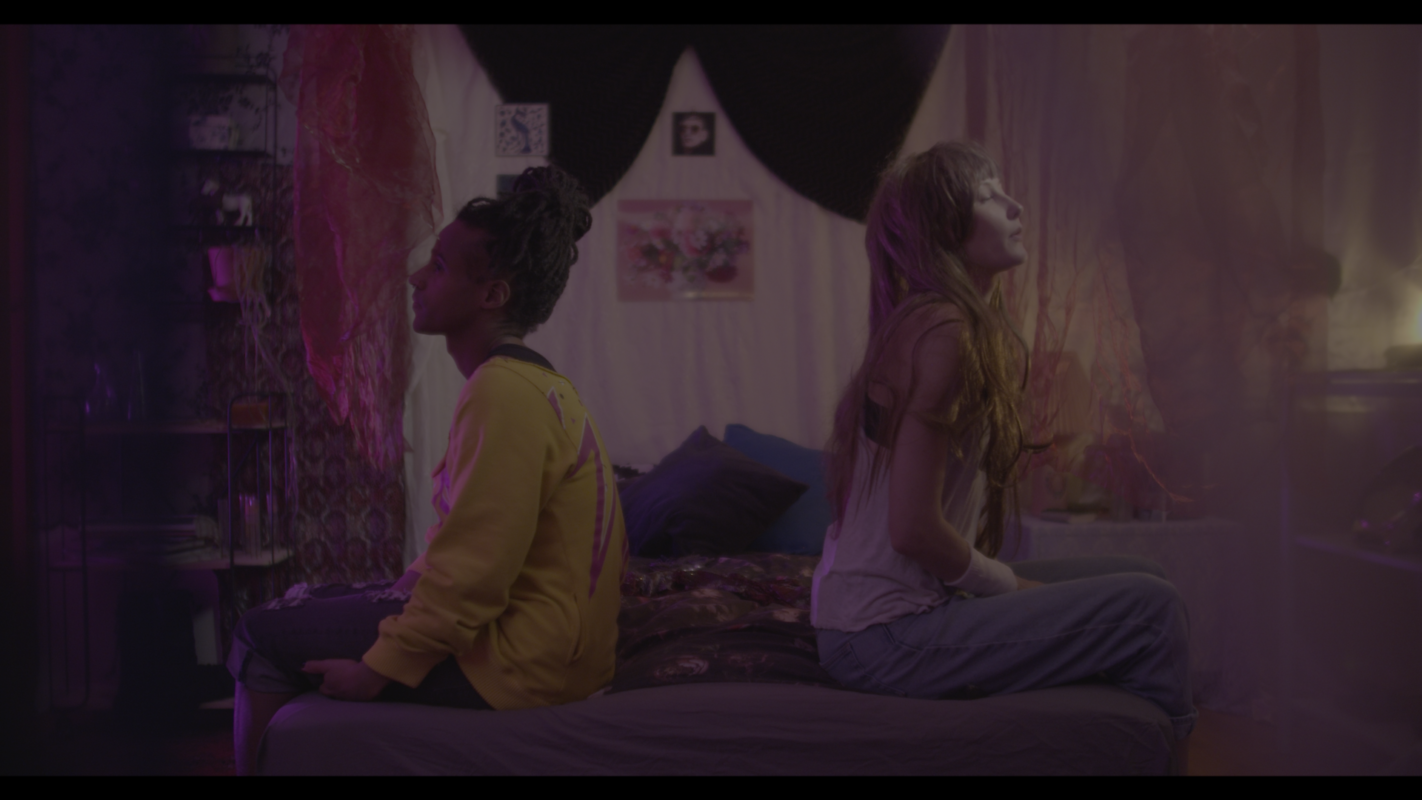Thin Ice
Denna text är bara tillgänglig på engelska
Duration: 24 minutes
Short Synopsis
Angelica, a cis-norm presenting ’woman’, is haunted by an intense dream that drives her to approach Ami, an openly queer person. But in Angelica’s attempt to get closer to Ami and to understand her yet never expressed queer identity and sexuality, she keeps stepping over boundries and violating Ami’s integrity.
Biography of the director
Frida is a film director and scriptwriter born in Umeå. They work with film, as well as other art forms like music, theater and acting, from 2004. Frida is also co-founder of a collective for queer, non-neurotypical and artistic people in Stockholm.
Frida Spång
fridaspang@gmail.com
+46-70 611 70 07
Artist Statement
In their queer film Thin Ice, Spång explores finding a queer perspective based on their own experience and understanding. The director also wishes to investigate what queer is, and can be, it’s gray scales and complex expressions. What are the preunderstandings of queer when the film meets its audience? How does our idea of what queer is and of who is allowed to be defined as queer effect the understanding of the film? And how does one work with a personal experience of queer in relation to a shared experience of queer, and the contemporary context in which queer films are viewed?
In this film the director has worked from the background of an analysis of how queer people are often depicted in film, the most common traits and angels, stereotypes and understandings. How does one work against and with these? How much does one need to adapt the film to a cis-normative gaze in order for a ’non-queer’ audience to be able to connect with the story? And is there a difference in how the story is interpreted depending on ones background, definition of the self and ones experience with queer?
It resulted in a film in which queer is at its fundament, while still allowing for other topics such as boundries, power dynamic and sexual desire to be dominant as well.





